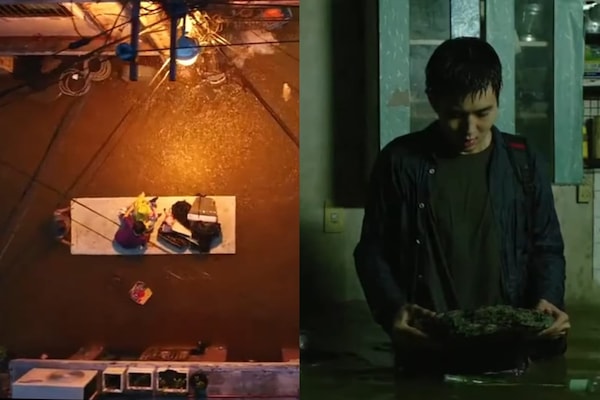Monsoon Magic: When Parasite used rain imagery to paint a powerful picture of class divide
In the film, director Bong Joon-ho explored themes of class and social inequality through the stories of two families- the impoverished Kims and the wealthy Parks.

Last Updated: 09.11 AM, Jul 23, 2022
Parasite had made history at the Academy Awards when the South Korean film won the Oscar for Best Picture, becoming the first non English language film to bag the award. Through his 2019 directorial, Bong Joon-ho painted a powerful, painful picture of class divide, made all the more impactful by the subtle symbolism the director masterfully weaved into the story. One of the most impactful among them involved a particular scene involving rain.
The film revolves around the story of two families at the opposite ends of the class spectrum- the wealthy Parks and the impoverished Kims. The sharp dichotomy between the lives of the two families is explored in excruciating detail throughout the film, right in the simplest of details of the way they live. The Park’s sophisticated home is the very picture of wealth and modernity, with its manicured lawns and sleek design. The Kim family find themselves having to cram in the semi-basement apartment they call home, a common type of residence among low income families in Seoul. Among the things the residents of such apartments have to live with, in addition to the risk of disease-causing mould, is the constant threat of flooding during heavy rains.
Indians are no strangers to the fury the monsoons unleash, and the devastation they can leave in their wake. Rivers swallowing their banks and floods strong enough to rip out hillsides have started to become yearly occurrences the country has been witness to with a worrying sense of frequency. In the more urban areas, this translates into flooded streets and homes, with the water at times rising high enough to engulf the whole of low lying houses. So the scene in Parasite, as the Kims frantically escaped the Parks’ home as the rains lashed on, reeked of ominous warnings to people familiar with the harshness that monsoon can bring. And sure enough, the Kims find their street inundated, having to make their way through rising ankle deep sewage water which has already taken hold of their neighbours’ houses. Their apartment too isn't spared of the rain’s fury, and the family scrambles to save whatever few possessions they have.
The swiftly rising water, which start to reach their necks, seems to be a painful reminder of the Kims’ situation, who find themselves at the metaphorical deep end in life too due to their economic position. While Kim Ki-taek struggles to grab the family’s worldly possessions, mimicking his attempts to keep his family afloat in life, we see the young Ki-woo and Ki-jung with sharply different reactions. After her attempts at containing the gushing torrents of sewage from the toilet fails, she gives up and starts to nonchalantly smoke a cigarette. Her brother is left staring at the scholar's rock given to him by his friend at the beginning of the film; the rock that promises to bring the bearer good fortune, set against the family’s miserable condition caused due to their poverty, almost seems like a cruel joke played on the Kims. The downpour causes so much destruction that the Kims, like many other families in their colony, are forced to take shelter in a gym.
But perhaps the most affecting and forceful part came after the skies cleared, and Ki-taek resumes his work chauffeuring Mrs Park. His employer remains blissfully unaware of the devastating effects of the rain, having waited it out in the comfort of her luxury home. We hear Mrs Park in her usual cheerful tone, talk to her friend on the phone about how she wants to host a garden party. The extent of how out of touch she is with the lives of those several social classes below her becomes apparent when she calls the rains a ‘blessing’, for giving them blue skies, the perfect weather for her party.

